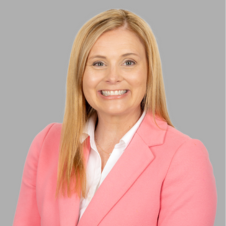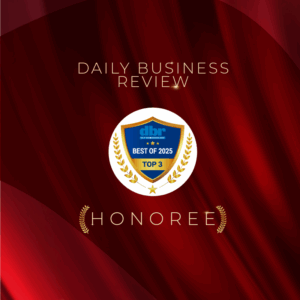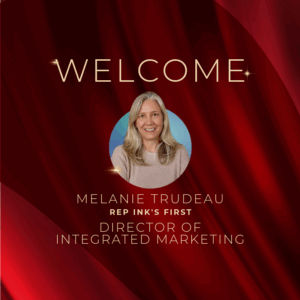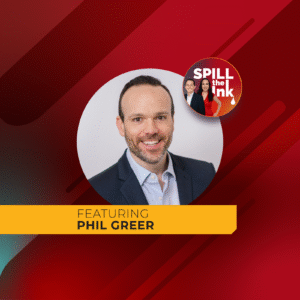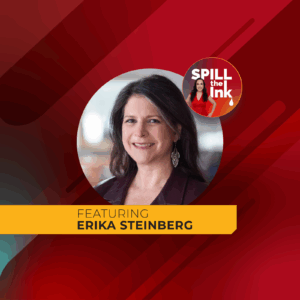
Spill the Ink: The Reputation Ink Podcast
The MIT Program: How Strong Habits Drove 82% New Business Growth at One Law Firm
Many law firms invest in excellent business development coaching, see fantastic initial results, then watch performance gradually decline. Anna Hedgepeth, Chief Strategy Officer at Cranfill Sumner, observed this cycle happening firsthand at her firm and set out to develop a psychology-based system that would produce lasting results.
Anna joins Michelle Calcote King on this “Spill the Ink” episode to discuss the “Most Important Things” (MIT) program, which has increased attorney matter originations by 82% on average at Cranfill Sumner. The disciplined 15-minute biweekly meeting requires attorneys to commit to three specific business development actions and leverages peer accountability to ensure consistency.
In this episode, Anna discusses the psychological principles behind lasting behavior change, shares real examples of effective MITs, explains her “no assumptions” rule for client development, and discusses the unexpected benefits of cross-office collaboration.
Here’s a glimpse of what you’ll learn
- Why business development coaching often fails after the initial year and how to spot when programs are losing effectiveness.
- The psychology behind limiting goals to three “Most Important Things” and why this creates sustainable habits.
- How 15-minute biweekly peer accountability calls outperform traditional solo coaching approaches.
- The “no assumptions” rule for business development and why questioning beats assuming client knowledge.
- Implementation advice for keeping programs simple, honoring time commitments and building attorney trust.
- The science behind written goals and peer accountability in professional settings.
- How the program creates unexpected cross-office collaboration and lateral integration benefits.
- Why forward-looking focus beats backward-looking performance reviews for habit formation.
About our featured guest
Anna Hedgepeth is a dynamic leader at the intersection of law, business development and strategic growth. With a strong foundation in public relations and legal education coupled with extensive experience in law firm marketing and strategy, she specializes in translating ideas into actionable business development plans that drive client engagement and organizational success.
As Cranfill Sumner’s first Chief Strategy Officer, Anna plays a pivotal role in shaping the firm’s growth. She serves on the Management Committee, leads the business development and marketing team, and oversees firm-wide strategic initiatives.
Anna is an active leader in the legal marketing and business development community. She serves on the Legal Marketing Association Southeast (LMASE) Regional Board of Directors and previously chaired the 2023 LMASE Regional Conference in Nashville, Tennessee. Additionally, she has chaired the LMA Raleigh City Group and served on its advisory board. She regularly speaks on various topics including law firm business and development.
Resources mentioned in this episode
- Check out Cranfill Sumner
- Follow Cranfill Sumner on LinkedIn and Facebook
- Connect with Anna Hedgepeth on LinkedIn
- Say hello to Michelle Calcote King on LinkedIn
Sponsor for this episode
This episode is brought to you by Reputation Ink.
Founded by Michelle Calcote King, Reputation Ink is a marketing and public relations agency that serves B2B professional services firms of all shapes and sizes across the United States, including corporate law firms and architecture, engineering and construction (AEC) firms.
Reputation Ink understands how sophisticated corporate buyers find and select professional services firms. For more than a decade, they have helped firms grow through thought leadership-fueled strategies, including public relations, content marketing, video marketing, social media, podcasting, marketing strategy services, creative services and more. To learn more, visit www.rep-ink.com or email them at [email protected] today.
Transcript
Disclaimer: What you’re reading is an AI-transcribed version of our podcast. It may contain mistakes, including spelling and grammar errors.
[00:00:00] Anna Hedgepeth: I think one of the most fundamental building blocks of business development is habit formation. So you’ve got to have really good habits. You’ve got to be consistent, you’ve got to be accountable, and you’ve got to keep moving it forward.
[00:00:17] Announcer: Welcome to Spill the Ink, a podcast by Reputation Ink, where we feature experts in growth and brand visibility for law firms and architecture, engineering and construction firms. Now, let’s get started with the show.
[00:00:34] Michelle Calcote King: Hi everyone. I’m Michelle Calcote King. I’m your host, and I’m the principal and president of Reputation Inc. We are a public relations and thought leadership marketing agency for B2B professional services firms, including law firms. To learn more, go to rep-ink.com.
Business development is a completely different skill from practicing law, but it’s one of the responsibilities attorneys gain as they move up in their firms. While many firms offer business development coaching, the real challenge lies in creating lasting, effective habits, and I’m happy to welcome Anna Hedgepeth to today’s Spill the Ink episode to talk about this.
So I’m not going to give too much away yet, but I’ll just start by saying that Anna has helped her firm Cranfill Sumner — Anna and I just talked about how I mess up some names sometimes — she helped the firm implement a supplemental program that’s yielding outstanding results by focusing on accountability, consistency, and measurable results. So I’m super excited to talk to you today. So welcome.
[00:01:40] Anna Hedgepeth: Well, thank you. Thank you. What a treat to be on here. This is amazing and I’m very excited. I love this program and I’m excited to talk to you about it. Thank you for having me, Michelle.
[00:01:50] Michelle Calcote King: Well, Anna and I serve on the LMA Southeast, the Legal Marketing Association Southeast Board, so I know her very well. But I’d love for you to tell our audience a little bit more about your background and what you do at the firm.
[00:02:02] Anna Hedgepeth: Sure. So I’m the chief strategy officer at Cranfill Sumner. I actually joined the firm right out of law school and have been there my whole career and helped build the BD and marketing team from the ground up. The business development coaching program we started in 2016. And the program I’m going to talk about today is a supplemental program that we’ve now been doing for about four years.
[00:02:30] Michelle Calcote King: Wonderful. And I love that you’ve got — I’m jumping around here, but you mentioned you’ve got an undergraduate degree in behavioral psychology and you’ve also got a law degree. And I love the combination of those two in your role. It’s almost like the perfect combination to approach this kind of work. Can you tell me a little bit about how did you go from psychology to a law degree and then to this role? Was it intentional or I’d love to hear a little bit about that.
[00:03:02] Anna Hedgepeth: Well, let me back up. I failed to mention, and I should have mentioned on here, I had a prior career before I went to law school in public relations. Oh, cool. So a wonderful appreciation for what you all do. And I wish I had a more exciting story to it. I was in undergrad, not really sure what I wanted to be when I grew up. And I had the most classes and interest in psychology. And so I was like, well, I’m just going to go ahead and get that degree. I did know I didn’t really want to do the counseling role or the traditional roles that a lot of psychology majors take. And so after that I started interning in a PR firm that later turned into about a four-year career. And I fully appreciate what you do because I even found psychology influential there because a lot of times you’re trying to tell a story in a compelling way about your clients or to help someone understand a really important issue that they are doing.
And it was so funny because I was like, I’m drawing so much from my psychology degree and really on building relationships with people and reporters in that job. I went on to law school, still not really sure what I wanted to do, and in law school, quickly realized, I was like, I don’t know if I want to be a traditional attorney.
And ended up finding this perfect marriage of my undergraduate degree, my prior experience, and then my legal education. So very thankful for where I am, but it was not a straight path and then it was not a planned path. But it’s worked out really well.
[00:04:33] Michelle Calcote King: That is a phenomenal mix of skillset to bring into what you do. So from that seat, what have you observed about where do you see attorneys struggling the most when it comes to business development?
[00:04:49] Anna Hedgepeth: I love this question. So it was really fascinating to me, and Michelle, you probably know some of this, we have worked with some amazing coaches and amazing programs. When we launched in 2016, we had this amazing year. Like our attorneys, our return on investment was fantastic. Like we were just seeing all these really great outcomes, candidly, from the BD coaching that we had them enrolled in and that they were doing. But then as we’re looking at our metrics, we’re noticing it tapering off.
It wasn’t having the lasting effect. A couple different years. We worked with some different coaches and it kept — I kept coming back to that question. I was like, why aren’t, why don’t we have the stickiness? Why isn’t it lasting? And it really, putting my psychology hat on, got me onto this mentality of I think one of the most fundamental building blocks of business development is habit formation. So you’ve got to have really good habits. You’ve got to be consistent, you’ve got to be accountable, and you’ve got to keep moving it forward. And that’s really where the idea for this program came from.
I saw my attorneys struggling with that consistency when they weren’t in the program anymore.
[00:06:08] Michelle Calcote King: So tell me, what is the program? So Anna developed a program called the Most Important Things program. Tell me about that program and give me the lay of the land on that.
[00:06:23] Anna Hedgepeth: Sure. So I don’t know if you’re familiar with Mo Bunnell, he’s out of Atlanta. Really well known for his research and writing. We were working with — not Mo directly, we were working with a gentleman by the name of Ryan Gerke. They were doing some of our business development coaching and training. And I’ll never forget I sat down and had a long conversation with Ryan and I just said, Ryan, I was telling him these observations I had and I said, what can we do to help our attorneys? Well, in Mo’s terms is MIT. So I want to be clear, I’ve borrowed that from his program. But one of the things I would tell anyone in-house is sometimes there’s a lot to be found in simplicity. So I was thinking, you know, what could we do with the MITs? Like, what are the most important things you’re going to do?
Just keep it to three. We created this supplemental program, so anyone who was in business development training had to do this MIT program in addition to their BD coaching. And then what we do is we leave it open to anyone who’s gone through coaching can continue in the MIT program. And right now I have about a third of our attorneys in that program.
[00:07:29] Michelle Calcote King: Wow, that’s great. So walk me through the structure of it. How does it differ from, so if they’re doing the traditional business development, how does this differ?
[00:07:41] Anna Hedgepeth: OK, so it is very simple. They are broken up into cohorts of four to eight at most attorneys, and they are assigned a 15-minute window every two weeks. Typically first thing in the morning, usually around 9 o’clock. So people, they have children or anything like that, they’ve got to do — 9 o’clock’s a good time we found, and they have to show up for those calls at 9 o’clock, cameras on, and they have to share three things. There are three most important things that they are going to do over the next two weeks to move their business development and marketing efforts forward.
So, and one other component that we’ve added to it over the years are — I don’t know if you’ve seen the research on habit formation, but if you write stuff down, if you write down your goals, you’re like 1.2 or 42% more likely to succeed. Oh, I’m a sticky note on the bathroom mirror gal. So, so they also have to send their MITs in advance of the call the week before, just to force them to write them down.
And then they get on the call and it’s just like, round robin, everybody shares the three things that they’re going to do, and we end the call. It’s 15 minutes. It’s very consistent, it’s very simple, and that’s it. The only other thing I’ve added is we also have a measurable — I call it a goal. It’s like a sales goal. Something measurable that they have to do during the year. So that’s either like a certain number of meetings or a certain number of speaking opportunities, and they’re asked to report on the status of that measurable goal quarterly.
[00:09:19] Michelle Calcote King: So can you give me an example of what, just so that people have it in their minds, what are some of those most important things? What are they doing? And I know, I can imagine, but give me a few examples.
[00:09:33] Anna Hedgepeth: Sure. So one might be to, if you have a — you know, we always tell people you should know who your top referrals or your top clients are. So one thing may just be simply to reach out to that person this week. It could be to, and let me back up here when they write them down. The other thing that’s really helpful is I can give them feedback. So if somebody writes me and says, I’m going to write an article in the next two weeks, I will usually say, do you really have the capacity to write an article? So maybe your first step should be outlining that article or researching it and then maybe finishing it. One of the things I really impress upon them is if you’ve got a lot of stuff going on, you need to scale back what you’re trying to do. So if you’re going — we’re a litigation firm, we serve businesses in all different aspects, and I’ll say, you know, if you’re getting ready to go to trial next week, you shouldn’t be writing articles. Your MIT might just be something as simple as getting on LinkedIn or just sending a quick message to a current contact, there should be some ebb and flow of what you’re doing and that helps build consistency. So did I answer that question? What is MIT?
[00:10:44] Michelle Calcote King: Absolutely, yeah. So it could be just as simple as sending an email or and then it could be as complex as writing an article or that kind of thing. And then you help them break down, hey, it sounds very familiar to, there’s a structure that we follow called Entrepreneur Operating System, EOS, and they do it by, they call them rocks and they do them by quarter. And your rock is your most important thing to move your business forward, so yeah, I’m very familiar with that. So your coaches will help you go, is that your most important thing? Yeah, it’s very similar. Really helping you focus and think about that. So one of the things you told my producer is that the program is forward-looking versus backward-looking. And can you tell me what the importance of that is and what that means?
[00:11:39] Anna Hedgepeth: Yes. So, you know, I think going back to the psychology of things, attorneys are very, you know, at least in our industry, attorneys are going to usually look for the risks or be worried about what didn’t happen. And I’m like, just let it go. The past is the past. How can you move forward? How can you grow, how can you — let’s not worry about it. So it’s — I’ve had a few people get on there and try to say, well, this is what I did last week. I’m like, no, no, no, no, no. We don’t, we’re not interested in last week. We’re interested in what you’re doing looking forward.
And to me that’s more of that growth mindset and realizing that we all drop the ball. We all don’t get something done, but we don’t need to spend time thinking about that. We need to just think about picking it up and moving forward. And so that’s a very intentional part of the program. If, and sometimes I will tell you, I have some people that repeat their MITs. They’re like, I didn’t get to them. I’m like, great. That’s OK. Just pick the ball back up and keep going. So.
[00:12:42] Michelle Calcote King: Yeah, and that seems almost like some psychology there. And I’d love to dig into what are some of the psychological principles that you’re drawing on with this program? So what are some of the foundations that you are using that help this be more effective?
[00:13:02] Anna Hedgepeth: So maybe understanding motivations and behaviors. There’s a lot to be said with, first of all, there’s peer accountability in all of this too. So it’s not just you’re reporting into a coach, you’re also sharing these ideas with peers across your firm. And I think people instinctively don’t want to let down their peers. So there’s that. Just, I’m trying to think what else. Like, you know, communication mastery, they’re learning how to communicate what they’re trying to do and articulate it to a group. Yeah.
[00:13:40] Michelle Calcote King: Well, I think the habit formation part too.
[00:13:44] Anna Hedgepeth: Yes, yes. Just the habit formation. It’s simple, it’s easy and it’s accountable. I probably give out — I feel like Adam Grant should send me his books because I give out so many copies of Atomic Habits in our firm, and I’m like, you just need to read this and this is — lawyers go to law school to learn how to practice law. They aren’t taught business development skills. And I tell them all the time, I’m like, this is not instinctive. This is something that can be learned, but it takes some effort and some time. And this program is here to really support you and help you do that. But I’ve had people doing this program now for four or five years.
[00:14:19] Michelle Calcote King: Wow. Well, tell me about, because I know you told my producer how successful it’s been. So tell me some of the results that you’ve been seeing.
[00:14:27] Anna Hedgepeth: Sure. So we’ve done it now long enough to track it, and so when I’ve had people, attorneys who have participated in it for two straight years, they have seen on average an 82% increase in their matter originations.
[00:14:40] Michelle Calcote King: Wow. That is huge. That is really, really huge.
[00:14:44] Anna Hedgepeth: It’s really fundamental and it’s moving the ball forward and it’s just those little things. I mean, they add up. It’s that compounding interest. I do say, I can’t say I have those rapid results after a year, and I tell people that’s to be expected. It takes time. But if you can really get that momentum going after year two, we’re still seeing really great results.
[00:15:07] Michelle Calcote King: Yeah. Well, it’s fantastic that you have those metrics so that you can prove that so that they stay in it past the year. So, because that’s a huge jump for a book of business. The other concept I wanted to ask you about that I know you talked to my producer about was the importance of not making assumptions. So we talk about this a lot from a marketing and PR perspective, but how does that apply specifically to business development?
[00:15:39] Anna Hedgepeth: Oh, I love this question. It has struck me over the years in working with attorneys and professionals that we tend to make assumptions about what we think people know or they do. And I tell them, don’t assume. Don’t assume that that client knows you do X or that they understand Y. Ask them if you’re not 100% confident that they know, then ask.
And I think that just goes to human nature. How often we think people understand or know more than they do. And so I just say, let’s not assume, let’s always ask the questions. It’s better to ask the questions. I love to hear how do you guys use it? What are your thoughts on assumptions in your firm?
[00:16:25] Michelle Calcote King: Yeah. The asking questions is, as you were saying that, I’m like, that is such, that is the No. 1 thing is to really dig and ask questions. And to really not assume that one, they understand the topic or that they want to be talked to in legalese, you know? Or that they have the same sophistication level, or that they want to consume information in a certain way. You know, you have to really think about the way people consume information. Everyone has different ways and to really understand that and what kind of topics they’re seeking, what’s on their mind. All of that kind of thing. We do a lot of that. We think we know until we actually go out and talk to clients. So yeah, it’s being busy and all of those things, so.
[00:17:22] Anna Hedgepeth: You hit the nail on the head with client feedback because that’s really one of the places we’ve started to see even more. We assume, and this applies to BD, you, we have assumed what our clients want or what our need, but when we start talking to them, we get a much more clear picture. And then that can really mold and shape what you’re doing from the business development perspective. They — we assume they’ve been wanting information about this when they’re really stressed out about this issue over here. So I love what you said though. Asking questions is so important.
[00:17:53] Michelle Calcote King: Yeah. Absolutely. So has there been any surprising lessons or insights as you’ve done this program that have surprised you?
[00:18:06] Anna Hedgepeth: You know, honestly, yes. And maybe I would say it should not have surprised me. We, you know, I started this out for BD purposes and habit formation. How do I help them keep their BD activities moving forward? But what it’s also resulted in is this great opportunity for attorneys. We have four offices, so three in North Carolina, one in Washington, D.C., and so it’s really given my people a chance to get to know people in other offices and create collaboration.
And we don’t do by structure. I don’t do them by a certain practice group. So they’re people that are mixed in from, and that is intentional and by design. So it’s people that are mixed in across the firm that maybe somebody does employment and somebody does administrative law. So, why I’m saying that is it’s created this opportunity for collaboration and learning about your peers, especially in a more remote environment where you might not see people in the office every day.
It’s also created more idea sharing. You’ll hear somebody saying, I’m making this cheat sheet for my client, blah, blah, blah. And then, you know, the next two weeks I’m like, somebody else is like, I’m going to use that idea and make that as one of my MITs is to create a cheat sheet. The other thing is we’re not large enough. We have around 85 to 100 attorneys, give or take. So we don’t have a full lateral integration team, but I’ve worked with my director of recruitment, and she and I have used this program for some of our laterals. So it’s a great way to get them integrated into the firm, to get to know their peers across the firm and to give them a regular check-in.
So for smaller firms or people that maybe don’t have the manpower of some of the larger firms that have teams dedicated to that, this program has proven to be a supplemental benefit there as well.
[00:19:59] Michelle Calcote King: Yeah, I could imagine there’s cross-selling benefits too to that since you’re mixing in. Absolutely. And let’s say there is an in-house BD person listening and they’re thinking, yeah, I would, this sounds great. You know, I’d love to implement this. Are there any things you’ve learned, look, make sure you avoid this pitfall or some real keys to success that you would say, you know, if you’re going to do this, make sure you look out for this or think about this.
[00:20:31] Anna Hedgepeth: Let’s see. I’m trying to think if there’s anything else. I think it’s just keeping it really simple.
[00:20:37] Michelle Calcote King: Yeah.
[00:20:37] Anna Hedgepeth: Don’t try to make it complicated. And I will say this, I honor that 15-minute window. So the attorneys know, I mean, I try to be respectful of their billable time. They’ve got a lot going on. So at 15 minutes, we’re done. It’s just quick and easy. So that’s really my only advice.
[00:20:57] Michelle Calcote King: That’s a great point actually. And the honoring that 15 minutes so that you almost build a reputation of, look, she’s not going to waste my time so that they don’t go into this — they know it’s going to be that 15 minutes. Also, that fact that you’ve got that amazing metric of 82% increase. I mean, you know, that’s phenomenal. So I’d love to give you the chance, if there’s one final thought, and it could be around this topic or it can be anything really that you’d like to leave our listeners with.
[00:21:28] Anna Hedgepeth: So this is, you’ve probably all heard it, but I think just small, consistent actions can create a really huge long-term impact. And so don’t underestimate the little things because they have so much momentum to add up to the big things. So I love that small — slow and steady.
[00:21:48] Michelle Calcote King: Yeah. And hey, two years, 82% increase. Come on. You can’t deny that. So that’s fantastic. So we have been talking to Anna Hedgepeth of Cranfill Sumner. So thank you so much for your time.
[00:22:02] Anna Hedgepeth: Thank you. It was a real pleasure, Michelle.
[00:22:07] Announcer: Thanks for listening to Spill the Ink, a podcast by Reputation Ink. We’ll see you again next time and be sure to click subscribe to get future episodes.
Related Law Firm Content
Strengthening the Profile of a Florida-Based Full-Service Law Firm
Reputation Ink | Oct. 3, 2025
Elevating a National Litigation Firm’s Profile Through Strategic PR and Thought Leadership
Reputation Ink | Jun. 17, 2025
Crafting attorney bios that instill trust, build relationships and boost reputation
Reputation Ink | Apr. 22, 2025
Join the INKsights Email List
Get Exclusive Updates on Awards, Lists, Rankings, Editorial Opps and More.
Subscribe to our newsletter, INKsights, to receive insights (pun intended) on thought leadership, public relations, and marketing for B2B professional services firms sent straight to your inbox.
Available only to our email subscribers:
Once a month, you’ll receive the latest awards, rankings, lists and editorial opportunities in the legal or AEC industry (you choose which you’d like to receive).
In the off weeks, we send you our latest thinking on the marketing and PR issues facing those industries. You can opt out anytime (although we’ll bet our favorite coffee mug you’ll never want to leave).
